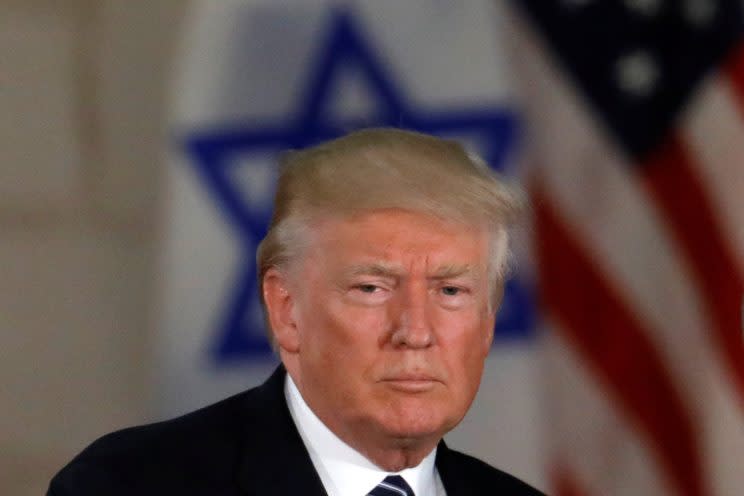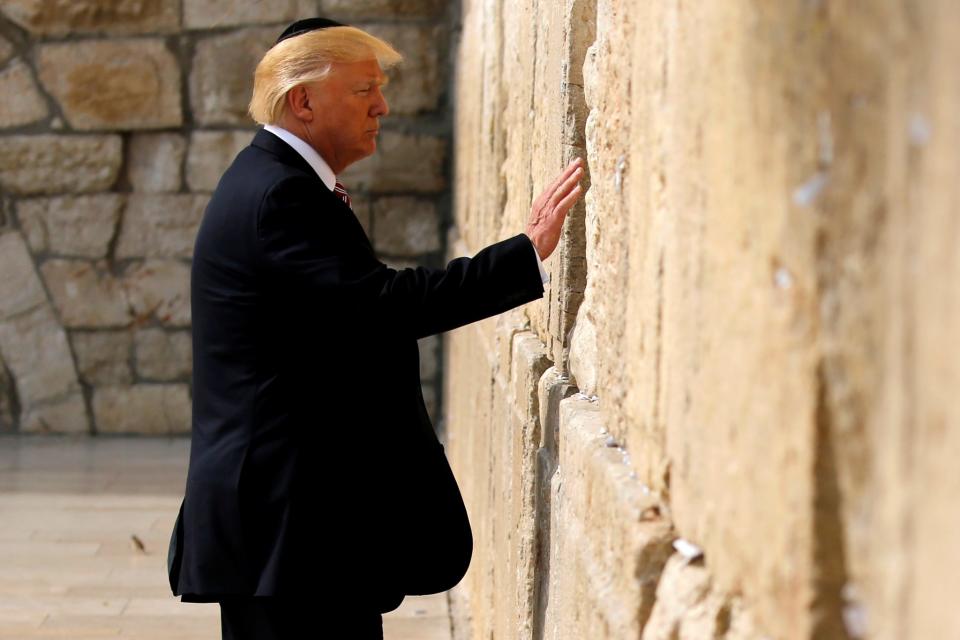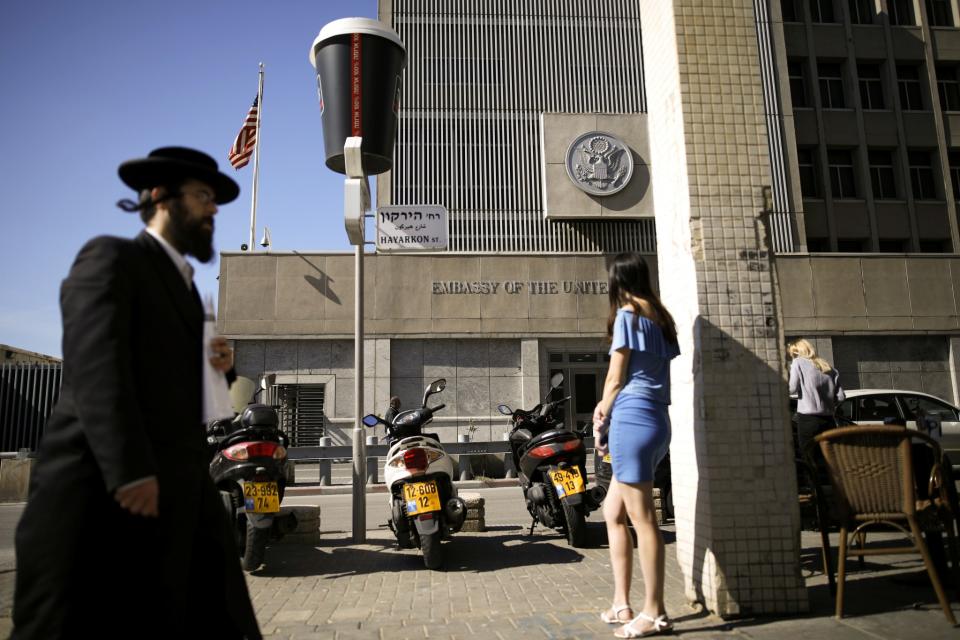Trump stalls on campaign pledge to move embassy in Israel

WASHINGTON — President Trump on Thursday postponed moving the U.S. Embassy in Israel from Tel Aviv to Jerusalem, stalling on a signature campaign promise on the grounds that shifting it now would hurt the chance to revive Middle East peace efforts.
In a message to Congress, Trump cited the need “to protect the national security interests of the United States” as he invoked his power to put off the move for six months — a nod to the same diplomatic realities that led his predecessors to break the same pledge.
“No one should consider this step to be in any way a retreat from the President’s strong support for Israel and for the United States-Israel alliance,” the White House said in a statement. “President Trump made this decision to maximize the chances of successfully negotiating a deal between Israel and the Palestinians, fulfilling his solemn obligation to defend America’s national security interests. But, as he has repeatedly stated his intention to move the embassy, the question is not if that move happens, but only when.”
In effect, however, that statement only reaffirmed the 1995 law that requires the United States to move its embassy from Tel Aviv to Jerusalem but provides presidents the power to hold off in six-month increments.
Israel has claimed Jerusalem as its undivided capital since 1950 and supports moving the diplomatic mission. But the Palestinians aim to locate the capital of their potential future state in the eastern part of the city, occupied by Israel since the 1967 war. Moving the embassy would effectively ratify the Israeli claim. It would also risk an angry response from Muslim allies whom Trump has described as vital to beating back terrorist groups such as the so-called Islamic State. U.S. policy has been to regard the dispute as one of the “final status” issues to be determined in Middle East peace negotiations.

The issue arose during the planning stages for Trump’s recently completed first trip overseas. Israeli officials proposed having Prime Minister Benjamin Netanyahu accompany Trump when he made the first visit by a sitting U.S. president to the Western Wall, one of Judaism’s holiest sites, located in East Jerusalem. U.S. officials declined. Two Trump aides told Yahoo News at the time that the Israeli offer amounted to a diplomatic trap.
Trump aides have said in recent weeks that the president is waiting to see whether his efforts to revive the Middle East peace process bear fruit before he rattles the status quo on the embassy.
Throughout the 2016 campaign, Trump vowed to move the embassy on his first day in office. In a statement announcing his nomination, David Friedman, the U.S. ambassador to Israel, said he looked forward to working “from the U.S. Embassy in Israel’s eternal capital, Jerusalem.” And just days before his inauguration, Trump responded to a journalist asking him about his pledge by saying, “You know I’m not a person who breaks promises.”
Still, “the embassy is not an easy decision,” Trump told Israel Hayom, a paper backed by U.S. billionaire and Trump campaign benefactor Sheldon Adelson, in a February interview. “It has obviously been out there for many, many years, and nobody has wanted to make that decision. I’m thinking about it very seriously, and we will see what happens.”
That echoed Trump’s hedging in a Jan. 29 interview with Christian broadcaster CBN. While “there is certainly a chance” that he’ll move the embassy, the president said, “this has two sides to it; it’s not easy to do it — it’s not easy — and I will make a decision over the not-too-distant future.”
Trump also indicated during February talks at the White House with Netanyahu that he was rethinking his promise. “As far as the embassy moving to Jerusalem, I’d love to see that happen. We’re looking at it very, very strongly. We’re looking at it with great care — great care, believe me. And we’ll see what happens. OK?” he told reporters.

Defense Secretary James Mattis is known not to favor the embassy move, seeing it as an unnecessary provocation that could inflame anti-American sentiment across the Arab world. And a Trump aide recently told Yahoo News that opposition to the shift from Jordan’s King Abdullah carried weight with the White House.
The sensitivities of the issue are clear on official government websites. The CIA’s World Factbook says this under the entry for Israel’s capital: “Jerusalem: note — while Israel proclaimed Jerusalem as its capital in 1950, the international community does not recognize it as such; the US, like all other countries, maintains its embassy in Tel Aviv-Yafo.” (At the State Department, the page that normally would include such details is “currently being updated.”)
The issue led to some infamously awkward moments in the Obama White House, including a back-and-forth in which administration spokesman Jay Carney tried to duck the question. And the White House changed a transcript of Obama’s eulogy for the late Israeli President Shimon Peres, striking “Israel” from a dateline that read “Jerusalem.”
_____
Read more from Yahoo News:



